INDUSTRIAL ANNEALING OVENS AND FURNACES
Despatch offers a wide selection of high performance industrial ovens designed for annealing applications. These annealing ovens feature a variety of chamber sizes and temperature capabilities, as well as exceptional temperature uniformity, flexibility and tight process control and monitoring.
Despatch’s high performance annealing ovens are used around the globe within a variety of industries, including technology, transportation, healthcare and industrial manufacturing
LBB Forced Convection Benchtop Ovens
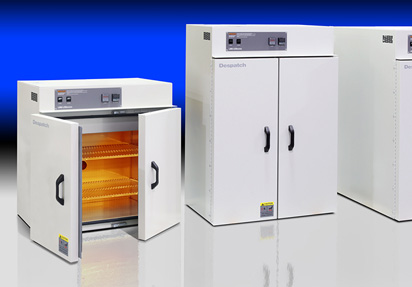
The Despatch LBB forced convection oven offers temperatures up to 204°C (400°F) which is ideal for annealing plastic. The stainless steel interior and top-mounted fan and heater make this oven a great choice for applications that may create spills. A combination of horizontal and vertical airflow offers excellent temperature uniformity. Available in benchtop and cabinet sizes.
VIEW MOREREQUEST A QUOTEONLINE STORE
LAC High-Performance Lab Ovens
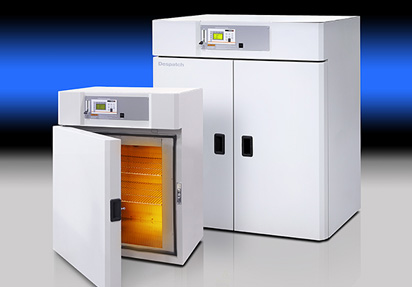
The LAC benchtop and cabinet ovens features horizontal recirculating airflow for exceptional temperature uniformity up to 260°C (500°F). The size and temperature of this oven also make it an ideal choice for annealing plastics. The LAC also features easy-to-use programmable controls, a design that is easy to clean and service and superior quality.
VIEW MOREREQUEST A QUOTEONLINE STORE
LCC/LCD Clean Process Benchtop Ovens
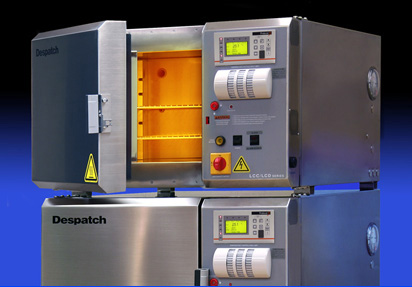
Despatch’s LCC and LCD benchtop clean process ovens offer air or nitrogen atmosphere and temperatures up to 260°C (500°F) or 350°C (662°F). These characteristics make the LCC/LCD ovens the perfect choice for annealing product that requires a clean process, such as medical device plastics. The ovens are stackable so you can increase production without losing space.
VIEW MOREREQUEST A QUOTE
LCC/LCD Clean Process Cabinet Ovens
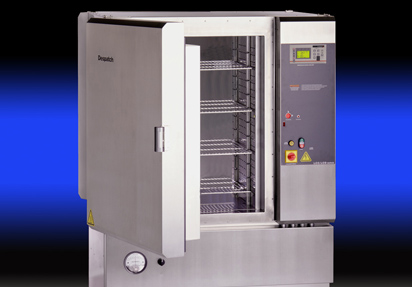
Despatch’s LCC/LCD2-14 clean process cabinet ovens offer the same temperature capabilities as the benchtop models in a larger size, and add a third atmosphere option of Class A. The LCC/LCD2- 14 annealing ovens are designed to meet the demands of production and large scale R&D environments and are CE compliant.
VIEW MOREREQUEST A QUOTE
RAD/RFD Industrial Cabinet Ovens
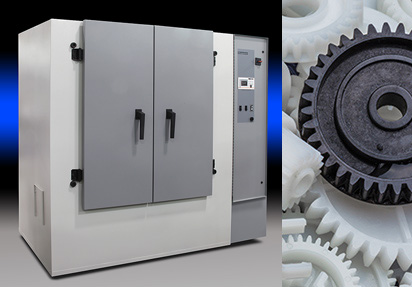
These reach-in ovens have exceptional temperature uniformity up to 343°C (650°F). The higher temperature capability is suitable for annealing or aging metals. The RFD Class A model was designed to meet NFPA requirements for annealing applications that include flammable solvents or large amounts of moisture removal.
VIEW MOREREQUEST A QUOTE
PRC Catheter Annealing Oven
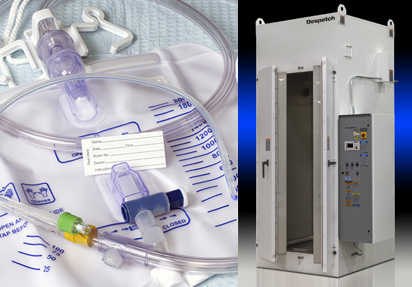
Designed specifically to address the unique requirements of catheter manufacturers. The oven features vertical airflow to keep cross wind from blowing tubes around, a tall configuration with a small footprint to save floor space while allowing room to hang catheters up to 80 inches long inside the chamber, and a stainless-steel interior for easy cleaning.
VIEW MOREREQUEST A QUOTE
TAD/TFD Walk-In Ovens
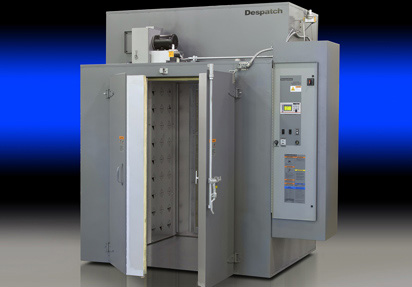
The large size and maximum 343°C (650°F) temperature of the TAD/TFD walk-in ovens make these models a perfect choice for annealing large-size or large batch metal components. Multiple temperature operations are controlled by up to eight programs. The interior is aluminized steel and features a plate floor with truck tracks for easy accessibility into the chamber.
VIEW MOREREQUEST A QUOTE
Large Capacity Walk-In Ovens
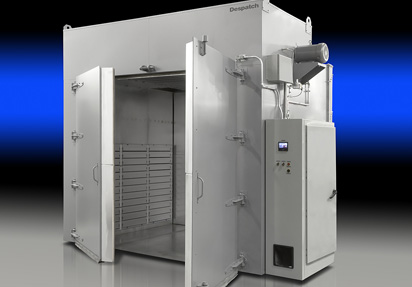
The large 476 and 952 cubic foot capacity Despatch TAD/ TFD walk-in ovens are the perfect choice for annealing large-size or large batch metal components. Multiple temperature operations are controlled by up to eight programs. The interior is aluminized steel and features a plate floor with truck tracks for easy accessibility into the chamber. Maximum temperature is 343°C (650°F).
VIEW MOREREQUEST A QUOTE
Annealing Applications
Annealing is the most commonly used for treating metals, but other materials, including glass and plastics, can be annealed. Depending on the material, annealing temperatures range from less than 100 degrees C to more than 1000°C., a process that can take hours or several days.
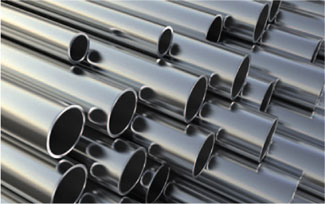 During the annealing process, a metal, plastic or glass is heated to a specific temperature or color and then the metal is cooled at a controlled, specified rate. This process changes the physical and chemical properties of the material to make it more malleable, or improve ductility; provide stress relief and create a new microstructure.
During the annealing process, a metal, plastic or glass is heated to a specific temperature or color and then the metal is cooled at a controlled, specified rate. This process changes the physical and chemical properties of the material to make it more malleable, or improve ductility; provide stress relief and create a new microstructure.
A specialized annealing oven gives users the ability to tightly control and monitor the heating and cooling process, allowing for proper recrystallization to occur within the material. The materials are annealed at the eutectic point and then allowed to cool. Annealing often softens the materials so they can be shaped or cut more easily, but can also increase its strength and ductility. Metals are often annealed to prepare them for further heat treatments.
Annealing Metal Pipes The environment; temperature maintained, both during and after the annealing process; and cooling rate are critical. Typical temperatures used in heat treating the most common materials include:
- Steel – 150°C to 1232°C
- Stainless Steel – 345°C to 400°C
- Aluminum – 90°C to 775°C
- Copper – 120°C and up to 800°C
- Plastics – 77°C and up to 260°C
Annealing Plastics
Annealing is not required in all plastic molding; some stresses can be eliminated without the annealing process, depending on the design and materials.
- Annealing plastics is recommended based on the following conditions:
- If the end-use conditions are demanding enough to require stress relief beyond what can be achieved through the product design, process and material
- If stress relief after machining is necessary.
- If during the post polishing process the material would likely crack due to surfaces stresses caused by the polishing itself.
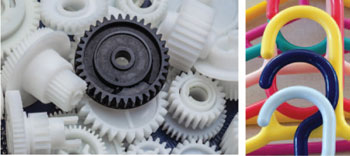 These are usually non-uniformed stresses that can lead to premature failure.
These are usually non-uniformed stresses that can lead to premature failure.
Advantages of Annealing Plastics Plastics that have been stress relieved offer:
- Tighter tolerance
- Improved chemical resistance
- Improved wear resistance
- Improved flatness control
- Better able to handle machined stress
Plastics require different annealing conditions and temperatures:
- Polycarbonate: 250°F(121°C) for as short a time as possible determined through experimenting with test data
- Ultem: slowly brought up to 400°F(204°C) and then held for two hours
- ABS materials: heat deflection temperature at 264 psi (170°F to 240°F) and held for 1-2 hours.
- Supec resins: Annealed at 400°F(204°C) for 4 hours






















